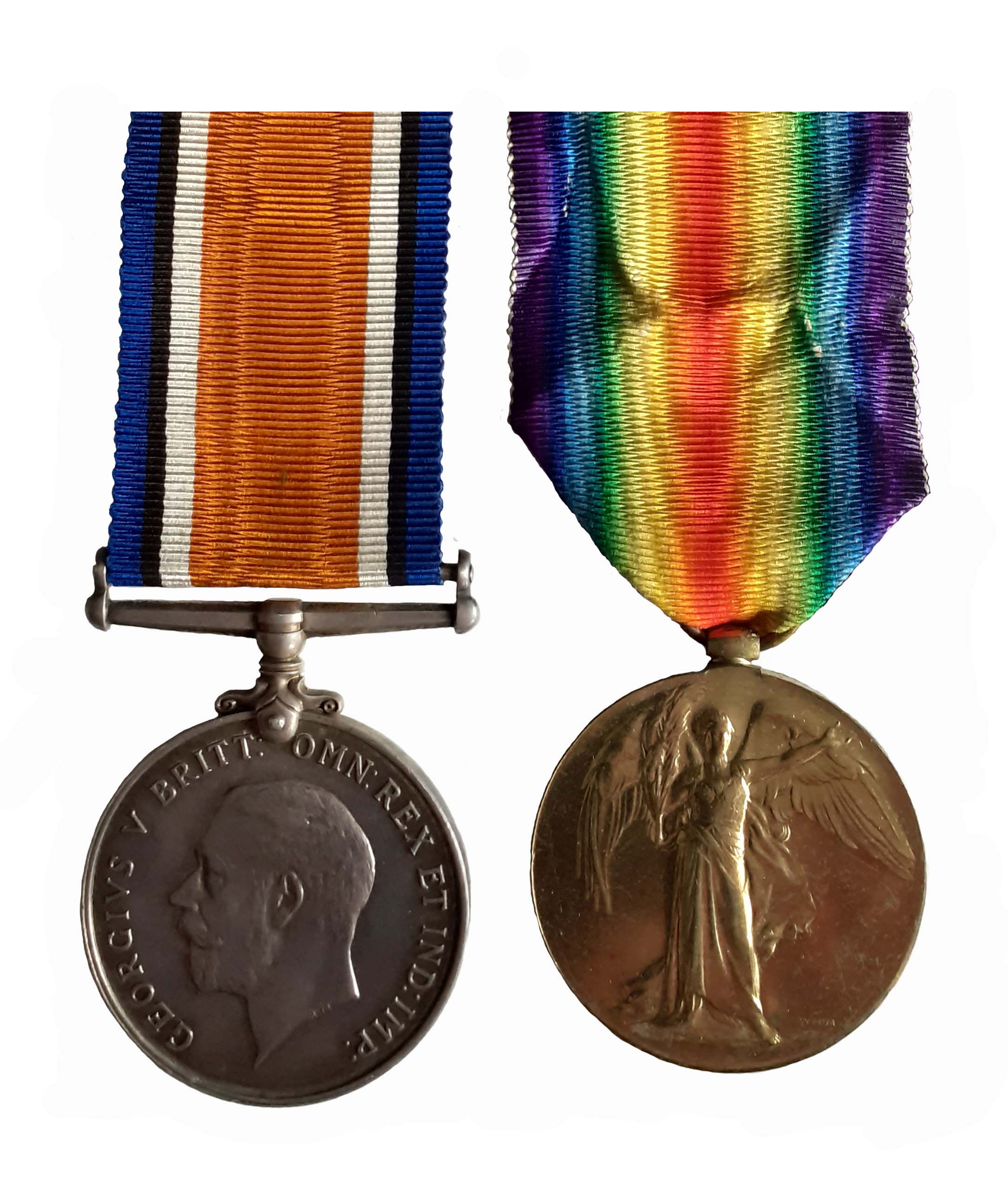Description
A Great War Officer’s Casualty pair awarded to 2nd Lieutenant Albert Victor Sadler Malcolm 16th attatched 11th Battalion (City of London Regiment) Royal Fusiliers who was Killed in Action on the 17th February 1917 in the attack on Boom Ravine comprising 1914-1920 British War and Victory Medals, (2. Lieut. A V. S. Malcom.), lightly toned very fine.
Albert Victor Saddler Malcom, a native of Bromley, Kent was Gazetted Temporary 2nd Lieutenant on the 29th October 1915. He was posted to the 16th Battalion, attatched 11th Battalion (City of London Regiment) Royal Fusiliers and landed in France on the 22nd November 1916. He is mentioned in the Battalion War Diary on the day of his arrival.
During November and December 1916 the Battalion was in trenches in the Northern Sector of the Somme battlefield in front of the German postions, including Boom Ravine, in front of the German held village of Grandcourt.
Boom Ravine
The 11th Battalion was the assult Battalion of the 54th Brigade and thier role was to advance from in front of Desire Trench to South Miraumont Trench, crossing Grandcourt Trench and the deep sunken road called Boom Ravine – a name which the Fusiliers always associate with the action. A thaw had just set in. The night was dark and misty. In fine, all conditions were against the attack; but the wire was cut, and forming-up lines taped in the forming-up place, the Gully, during the night. The assembling place was very crowded at 4.45am on the 17th February, and, unfortunately, the Germans had discovered the plan in detail. A heavy barrage was opened upon the Gully just before zero and the Fusiliers suffered very heavily. It was raining and pitch dark, the Gully was slippery with mud and packed with troops. Such an ordeal, gallantly overcome, speaks volumes for the spirit and discipline of the troops; for the Fusiliers leapt forward at zero as though no hour of horror had preceded it.
At zero only Captain Morton and Captain Colles Sandes remained unwounded. At 5.45am came the Barrage and the men followed closely; but little progress had been made before both these two officers joined the others, Captain Morton with a serious foot wound and Captain Colles Sands with a wound in the neck. The two leading Companies were now without officer’s; and the men continued the advance over the shell-pitted slippery front in the darkness and rain. Some delay occurred at Grandcourt Trench, where the wire was not sufficiently cut. The men pressed ahead and reached the 40 feet deep cleft called Boom Ravine. There was now not an officer left in the 4 Companies who was not a Casualty. The Battalion was held together by Sergeants. C.S.M. Fitter, although wounded in the thigh, reorganised the Companies and directed the advance. All ground was subsequently lost that morning during a German counter-attack.
This battle was one of the most tragic episodes in the Battalion’s history. Of the Officers 2 were killed, 1 died of wounds, and 11 were wounded; of the other ranks 36 were killed, 162 wounded and 69 missing.
Extract- The Royal Fusiliers in The Great War.
Albert was 29 years old when he was killed he is commemorated by a Special Memorial “Believed to be buried in this Cemetery” in plot “A” of Regina Trench Cemetery, Grandcourt, Somme, France



